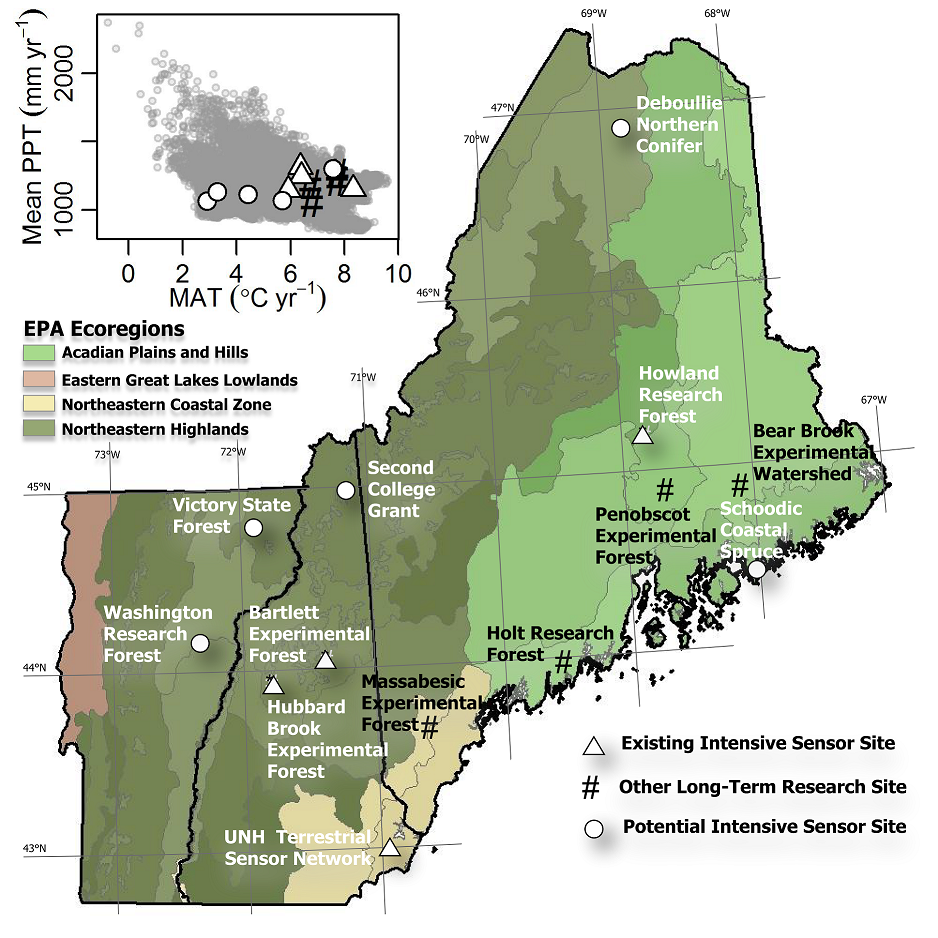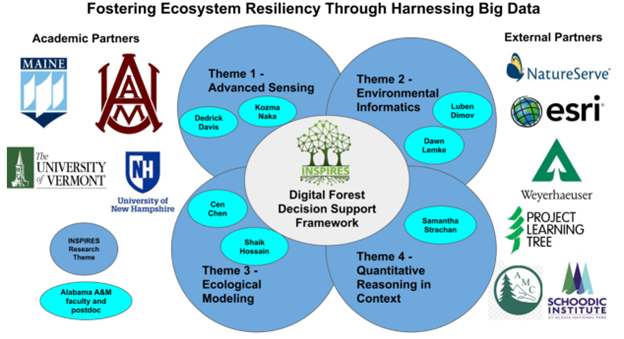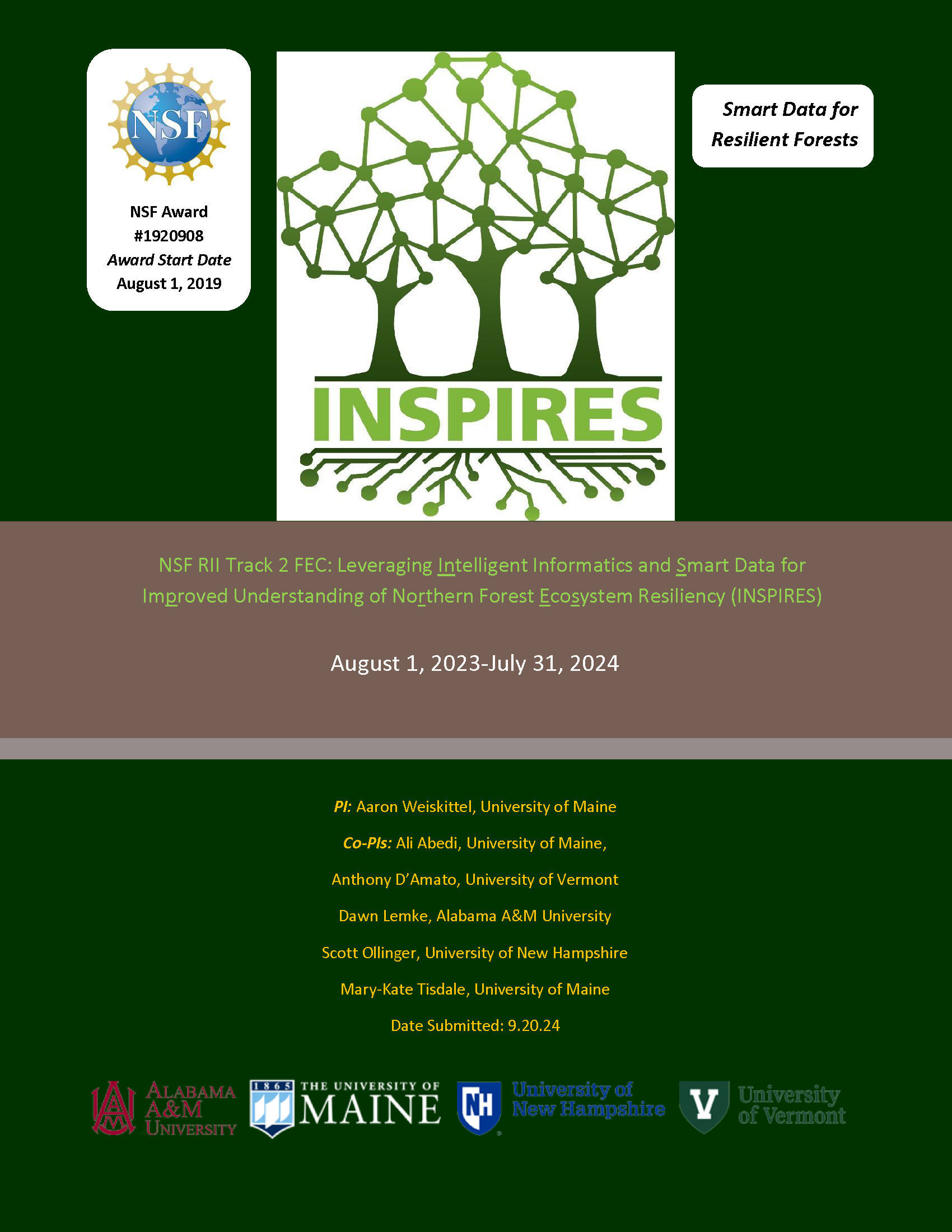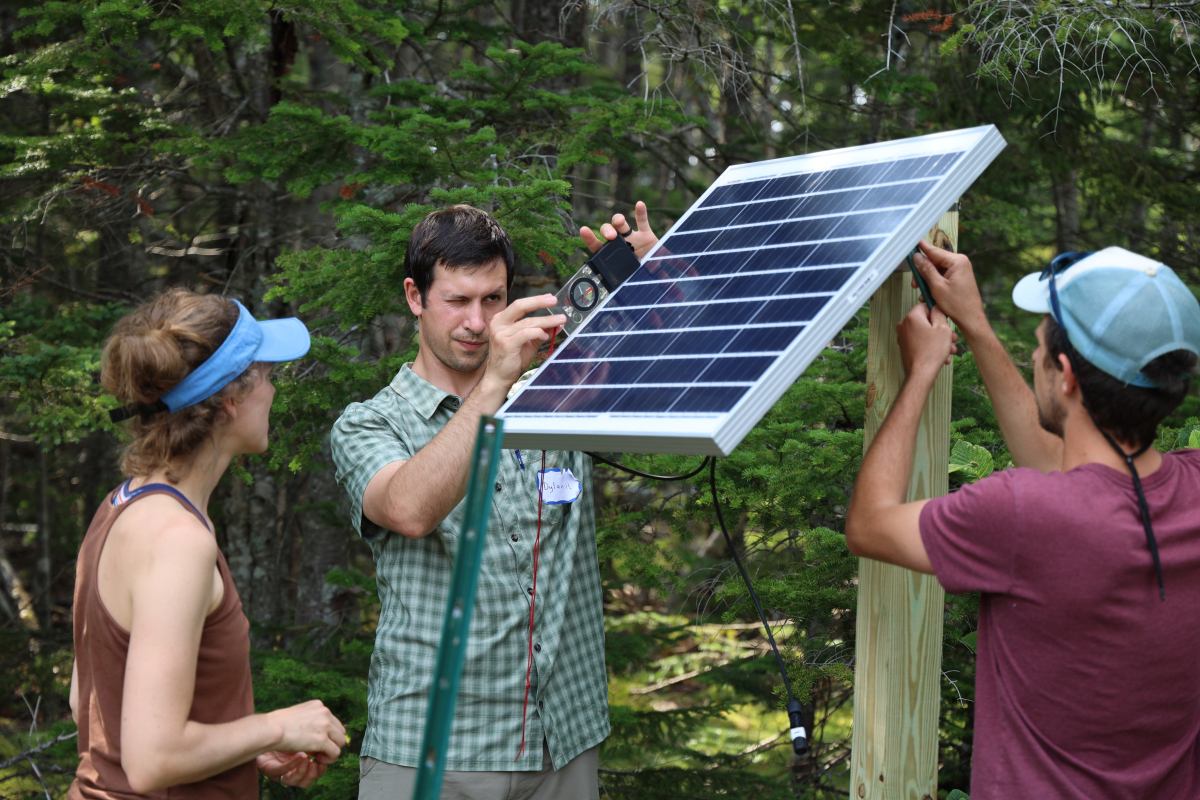INSPIRES: Smart Data for Resilient Forests

KEY PROJECT OUTCOMES
Innovative Research and Technological Advances: Developed novel low-cost sensors and applied artificial intelligence to environmental data, leading to significant advancements in monitoring and understanding forest ecosystems. These technological innovations resulted in numerous peer-reviewed publications and set new standards for data-driven environmental research.
Cross-Disciplinary and Cross-Jurisdictional Collaboration: Integrated expertise from multiple disciplines and institutions, fostering strong collaborations across the University of Maine, University of New Hampshire, University of Vermont, and Alabama A&M University. This collaboration enhanced the quality and scope of the research and built lasting partnerships that extend beyond the project’s duration.
Educational & Workforce Development: Substantial contributions made to education by supporting early career researchers, providing them with mentorship and professional development opportunities, and engaging K-12 educators in research activities, resulting in the successful career placement of many early career participants and strengthened the regional STEM workforce.
Real-World Application & Policy Influence: The research findings, particularly those related to cold air pooling and biodiversity, were translated into actionable insights for land management and policymaking. The project’s collaboration with industry and non-profit organizations ensured that the scientific outcomes had practical applications, influencing forest management practices and environmental policy.
Sustainability & Long-Term Impact: INSPIRES laid a strong foundation for sustained research and collaboration, with recommendations for future funding and continued partnerships. The project’s outcomes are poised to have a lasting impact on forest ecosystem research and management, as well as on regional STEM capacity.
Aaron Weiskittel
University of Maine
Professor of Biometrics & Modeling
Irving Chair of Forest Ecosystem Management
Director, Center for Advanced Forestry Systems
Director, Center for Research on Sustainable Forests
Anthony D’Amato
University of Vermont
Professor in Silviculture & Forest Ecology
Director, Forestry Program
Director, UVM Research Forests
Dawn Lemke
Alabama A&M University
Assistant Professor of Environmental Sciences
Scott Ollinger
University of New Hampshire
Professor, Department of Natural Resources and the Environment,
Director, Earth Systems Research Center
INSPIRES YouTube Playlist

The Northern Forest Region (NFR) and Big Data
- NFR covers 26 million acres and is home to over 2 million people that stretches from Maine though northern New Hampshire, Vermont and New York
- Highly diverse and transitional ecosystem with a history of natural disturbance and mixed land use
- Land use pressures, invasive pests, and abiotic stressors on the rise
- Current forest-related information is highly varied, ranging from coarse national-scale coverage to incomplete and often sparse regional and local
- Limited and rather patchy availability of ecological data confounds systematic assessment of NFR
- Big Data approach that integrates contrasting forest information, ownership, management units, and underlying ecology is needed, which could create a “natural laboratory” for scientific experimentation
- Our Digital Forest Framework will effectively harness the region’s complex working landscape and digital information diversity
Maine STEM Partnership
In the fall of 2020, eight teachers and five researchers from the RiSE Center began working together to develop lessons for the classroom focused on forestry and Quantitative Reasoning in Context (QRC). This work is being done as part of our INSPIRES award focused on researching the Northern Forest Region. This aspect of the project will focus on exploring how to support students’ quantitative reasoning skills in the context of forestry. To learn more about this research, visit the Maine STEM Partnership webpage.









